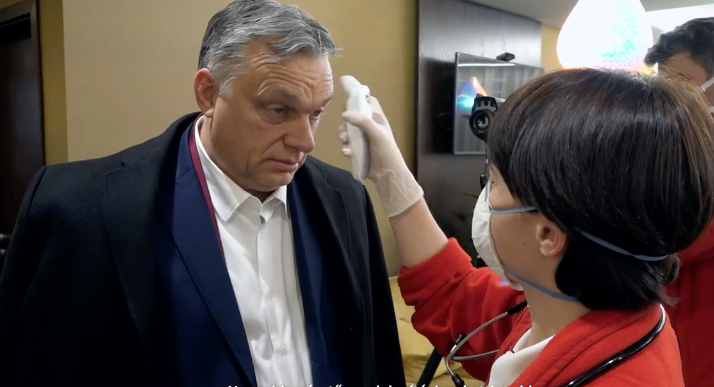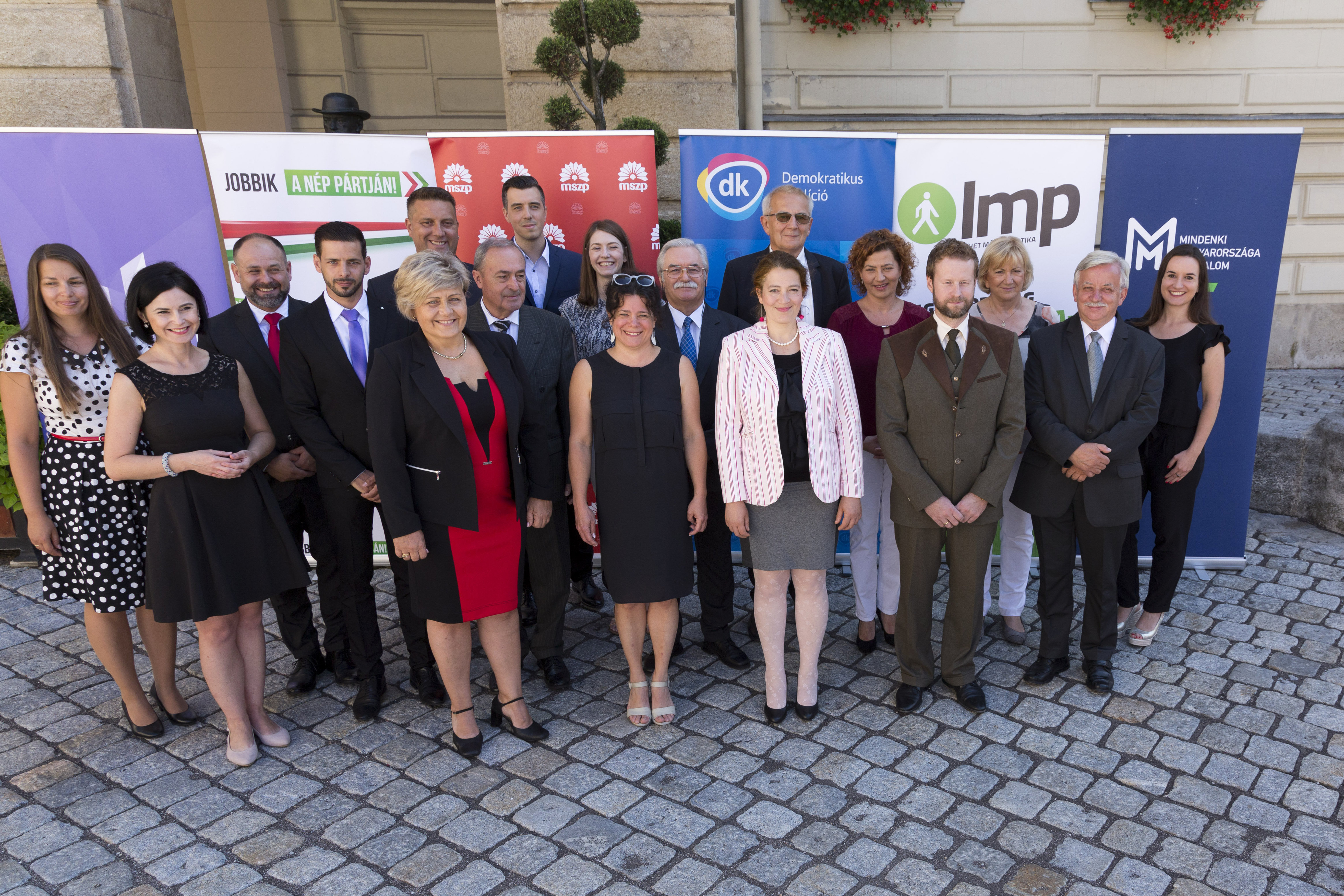Orbán turns attention from pandemic defense to the "great battle" of 2022 elections
- Stay updated on the latest news from Hungary by signing up for the free InsightHungary newsletter:
Viktor Orbán thinks a great battle is coming to Hungary.
In a recent epic treatise in pro-government newspaper Magyar Nemzet, Orbán used militant rhetoric to rally his supporters and political allies to a "decisive battle" to be waged in 2022, the year of the next national elections in Hungary.
Orbán described his opposition as "a left-wing people's front that serves the Soros network", which will have "the international media, the Brussels bureaucrats and the NGOs in the guise of civil society organisations" behind them ahead of the elections.
These bellicose calls to battle marked the beginning of a new strategy following Orbán's earlier attempts to portray himself as the frontline leader of virus response during the first months of the coronavirus pandemic. Throughout the spring and summer, the prime minister frequently posted videos to social media of his visits to hospitals, meetings with the Emergency Task Force, and personal announcements of new pandemic policies.
But according to reporting by 444's Pál Dániel Rényi, Orbán and his Fidesz party now believe that if they are to remain competitive in 2022, they must regain dominance over political discourse, and reinvigorate voters whose attention has been fixated for more than half a year on the pandemic.
As the "second wave" shatters spring numbers in terms of new and active cases of the coronavirus, the government has taken a lax approach toward imposing stricter containment measures. According to sources close to the government, this reluctance reflects Orbán's anxiety that ordering new restrictions would lead to a major economic downturn and surge in unemployment that could cost him the next election.
According to a source present at Fidesz's session-opening caucus meeting on September 17, Orbán urged politicians to remain focused on the upcoming campaign despite the pandemic, and has predicted a "near tie" in 2022 elections when speaking to party members and business leaders. One source said the prime minister "regrets giving in to the pressure" to close schools and shut down the country to slow the spread of the pandemic, and another source close to Orbán quotes him as saying, "If we shut down, 2022 could be lost."
Maintaining business-as-usual is a gamble that already appears to be having negative consequences for public health: in the past two weeks, Hungary has registered the 9th highest number of infections per 100,000 people in Europe, prompting the European Centre for Disease Prevention and Control (ECDC) to place it among eight other "red list" countries on its coronavirus map. Hungary's current restrictions are even looser than those imposed during the first wave in Sweden, famous for its hands-off approach and subsequent struggles with the virus.
The will of the people
However, the government's nationwide questionnaire on pandemic response and economic protection, launched in June, could serve to lift some of the burden of responsibility from Orbán and his favoring of the economy over robust pandemic defense.
While only 1.8 million people completed the National Consultation, the government has treated the informal poll as a mandate to prioritize the economy, regardless of how rapidly the pandemic spreads.
Orbán has repeatedly used the phrase, "The country must function!" in the weeks since the end of the consultation, and attributed it to the "unanimous will of the people" as expressed by the questionnaire.
"In March, everyone wanted a lockdown," one high ranking Fidesz politician told 444. "Now they don't want that. Certain social groups, and especially young people, are more afraid of the consequences of closing the country down, and we're responding to that."
But some medical professionals advising the government on the pandemic, including members of the Emergency Task Force, do not agree with the strategy. A permanent board of healthcare professionals advising the government, for example, urged a tightening of restrictions in mid-August, but Orbán refused. The head of the government's coronavirus research group, virologist Dr. Ferenc Jakab, has consistently warned that failing to impose more serious prevention measures would result in drastic increases in infections and deaths.
But one analyst at a government-tied think tank described the relationship between the government and epidemiological experts as having become "cynical" in recent weeks, and politicians are said to have begun ignoring scientists during meetings of the Emergency Task Force, causing tensions.
In his speech opening Parliament's autumn session, Orbán said, "Who believes doctors and mathematicians and how much is a matter of taste," referring to worst-case-scenario projections by the government's own epidemiological advisors.
The government's most recent behavior concerning the pandemic reflects this cynicism: the most severe restriction imposed in response to record-breaking increases was the September 1 closure of Hungary's borders, a measure most experts believe does little to slow the spread of the virus.
Meanwhile, other regional leaders have acknowledged their mistakes in loosening restrictions through the summer. Last week, Czech prime minister Andrej Babis urged renewed vigilance against the pandemic and admitted that his government had erred, saying “Even I got carried away by the coming summer and the general mood. That was a mistake I don’t want to make again.” Slovak Prime Minister Igor Matovic also expressed remorse that he had fought for lighter restrictions during the summer, something he attributed to his own "recklessness" and "egotism".
Orbán, too, has urged Hungarians to follow regulations on mask wearing and social distancing, but has taken no responsibility for the record-setting intensity of the pandemic's spread. Nor has the government recommended that companies introduce home office work, limited the number of guests at private events, or disallowed spectators from attending football matches, measures many of Hungary's regional neighbors have imposed.
Vox populi
These decisions reflect the government's careful monitoring of public opinion rather than epidemiological considerations when developing policy. According to one researcher, most Hungarians do not favor the closure of schools or the reintroduction of age-based opening hours for businesses, and government decisions have responded accordingly to these sentiments rather than to recommendations by scientists.
This strategy suggests the government is reluctant to enact policy that could upset certain groups of voters, a degree of caution seemingly incongruent with the steady support Fidesz continues to enjoy: polls show that around 40 percent of voters support the governing party, a figure which has not seen a significant dip since the beginning of the year.
Still, Orbán's legitimate fears of a deep economic downturn is not the only challenge he'll face in 2022. The political opposition is poised to mount the most serious challenge to Fidesz's supremacy since the party's re-entrance to power in 2010. Each of the six major opposition parties agreed to run a single joint candidate in Hungary's 106 voting districts to face off against Fidesz-KDNP candidates, a potentially serious threat to Fidesz's hegemony in Parliament. The parties also announced they would "create a common platform in the interests of the country", and would use negotiations and primaries to select which individual candidates to run in each district.
Municipal elections held in October 2019, where opposition parties first employed their unity strategy, resulted in substantial losses for Fidesz across the country. How Orbán will seek to head off a repeat in 2022 remains unclear, but there already appear to be attempts to split this hard-fought coalition.
A potential fissure in the unity strategy appears to be centrist youth party Momentum's insistence that controversial former Prime Minister Ferenc Gyurcsány cannot take any role in a potential future coalition government. Fidesz's communication strategy now appears set on broadening this divide.
In a rare move, Orbán invoked Gyurcsány by name in his essay in Magyar Nemzet, portraying him as working in the service of a "global elite" to topple Hungary's government.
"Their instrument is the Left, which has already failed several times," Orbán wrote. "The leader of this is Ferenc Gyurcsány, its youth organisation is Momentum, and its billionaire sponsor is George Soros."
This article is based on a piece in 444 by Dániel Pál Rényi, which can be found in Hungarian here.





